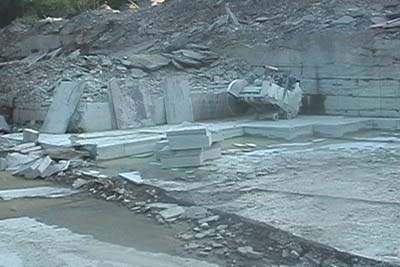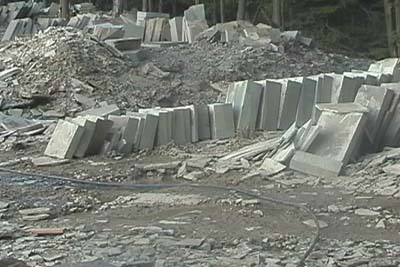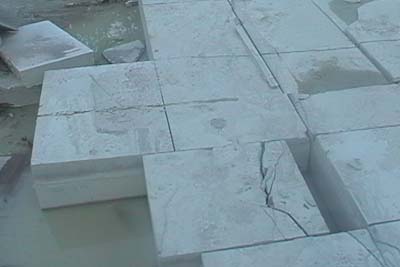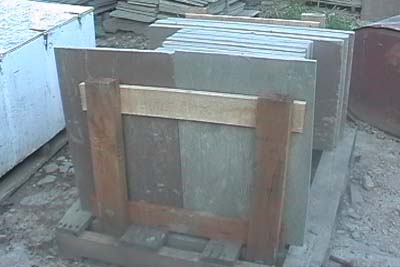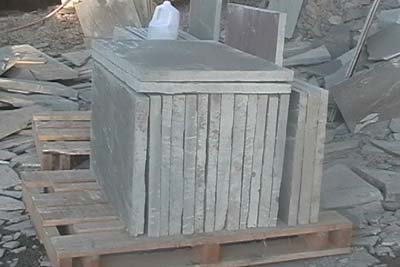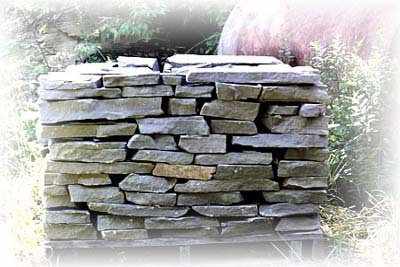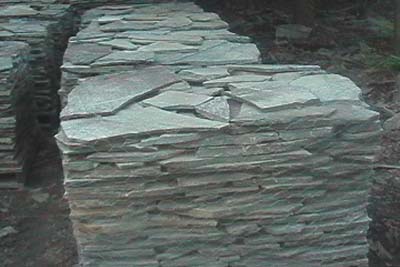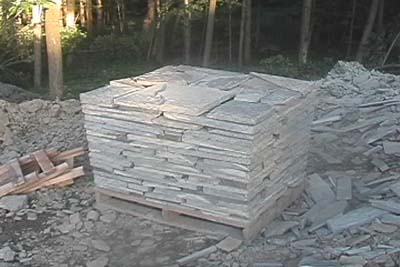Southern Tier of New York.
It takes qualified, certified and licensed miners Quarrymen, explosive experts, excavators, and laborers to find and remove the stone from some of the most remote areas in the North Eastern US. It takes allot of expense, experience ( and sometimes luck ) to uncover this product from the hillsides and mountain tops. Pictured at right you can see some newly uncovered blocks of stone.

